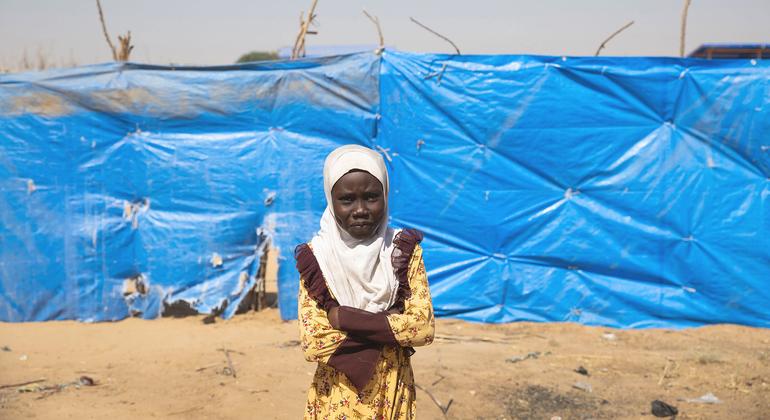Since April 2023, Sudan has been caught in a devastating internal conflict that has resulted in a war between the Sudanese Armed Forces (SAF) and the Rapid Support Forces (RSF), a paramilitary group. This situation has intensified preexisting structural problems in the nation, such as political instability and economic crisis, leading the country into a severe humanitarian crisis.
The violence generated by this conflict has forced thousands of Sudanese to leave their homes every day, seeking asylum in neighboring countries. The UN Refugee Agency (UNHCR) has reported devastating attacks in displaced camps in the North Darfur region, leaving a tragic toll of civilian casualties. Additionally, the UN has issued an urgent call to prevent widespread famine, warning that out of a population of around 50 million inhabitants, close to 25 million are facing severe food insecurity.
The displaced crisis in Sudan has reached alarming levels, becoming the largest in the world currently, with a third of the population displaced. It is estimated that around 3.8 million people have crossed borders in search of refuge. Chad and Egypt are the countries that have received the largest number of refugees, with figures exceeding 700,000 and 600,000 respectively. Both nations have expressed concerns that these numbers may continue to rise as the conflict persists.
The massive influx of refugees has overwhelmed healthcare facilities in nations like Chad, Egypt, Ethiopia, and South Sudan. The lack of medicines and medical staff has reached critical levels, causing humanitarian programs, already overwhelmed, to face severe funding difficulties. In Egypt, UNHCR has been forced to suspend essential medical procedures, affecting thousands of patients with chronic illnesses.
The World Health Organization (WHO) has described the situation in Sudan as a “perfect storm.” The lack of adequate healthcare infrastructure and limited access to food, water, and basic services have contributed to the rise of diseases, which are beginning to spread to neighboring countries hosting refugees. This phenomenon has raised alarms about possible outbreaks of preventable diseases, mainly affecting the most vulnerable populations.
The conflict has also had serious implications for security in the border regions of neighboring countries. The arrival of refugees has increased pressure on the social and economic systems of these nations, which were already facing their own internal crises. Security conditions have deteriorated, with reports of cross-border clashes further exacerbating the situation.
Sexual violence has become a tragic tool used in this conflict, exposing many children to unacceptable risks and forcing them to flee in search of safety. Girls are the most affected by these acts, and the difficulty in accessing health services and psychological support makes their situation even more alarming.
In summary, the conflict in Sudan has not only devastated the country but has also had profound repercussions in the surrounding region, exacerbating poverty and complicating economic conditions in neighboring countries. Communities hosting refugees face growing challenges in providing assistance, in a context where resources are becoming increasingly scarce. The UN has called for the mobilization of international efforts, emphasizing the urgent need for funding and support to address what is shaping up to be one of the most serious humanitarian crises of the century.
Referrer: MiMub in Spanish










